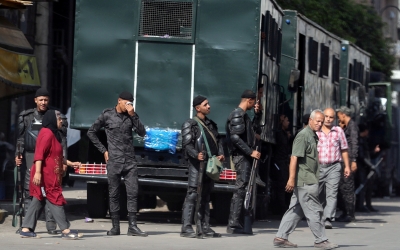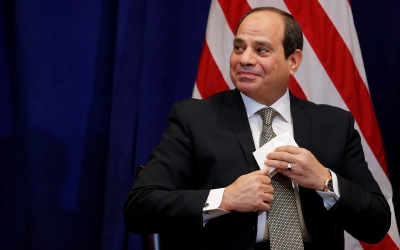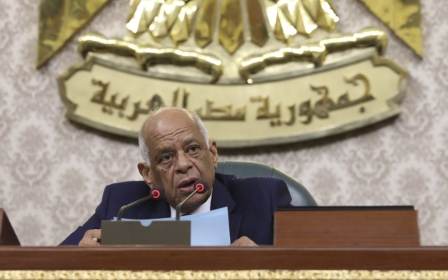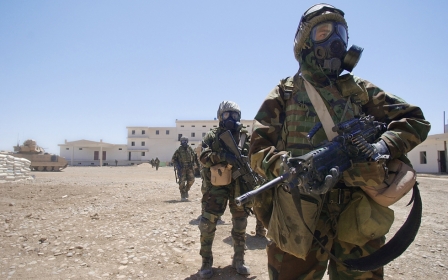US aid to Egypt poised to proceed in what rights groups call 'shameful' act
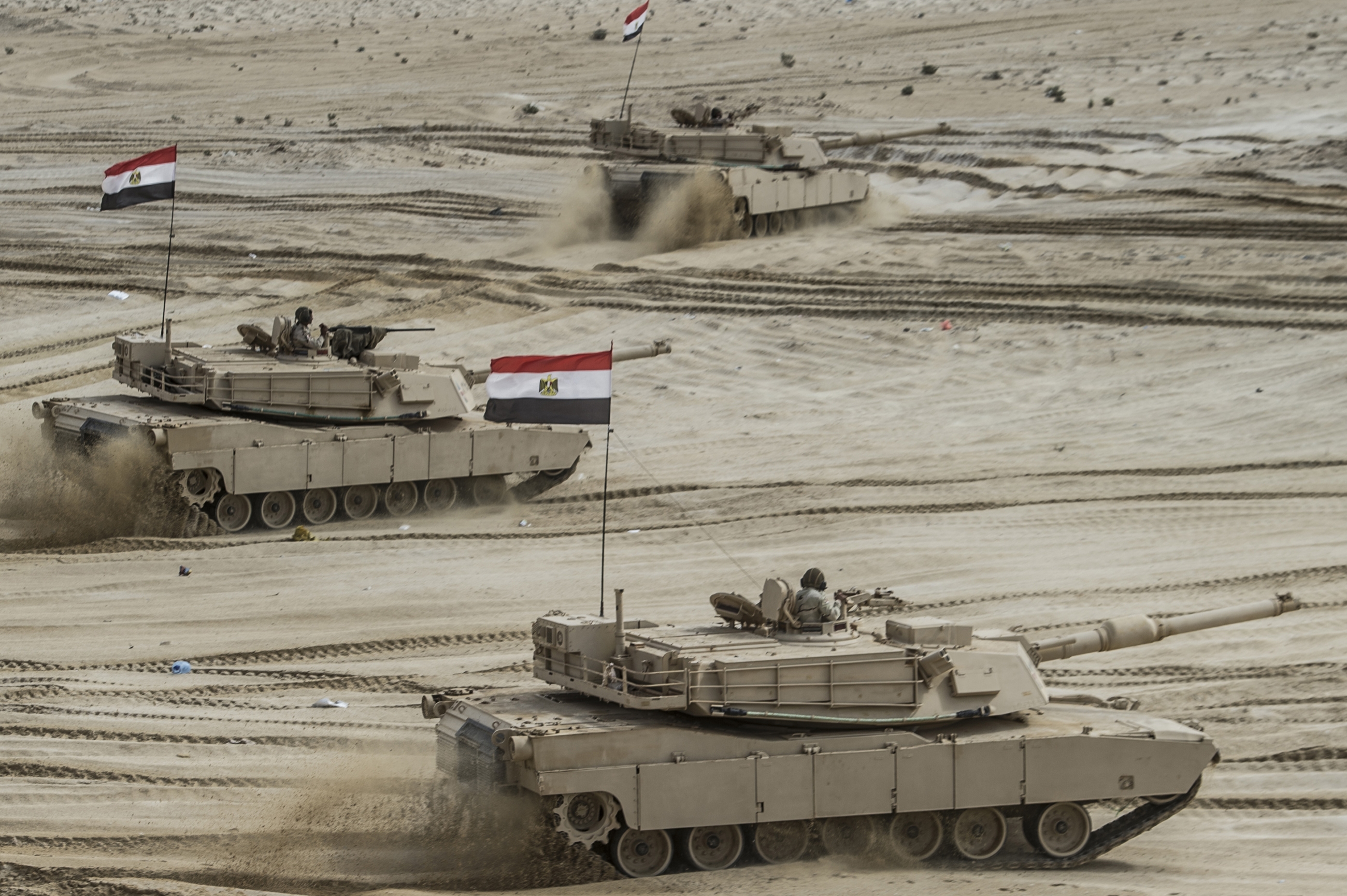
Human rights activists in the United States are questioning Washington's decision to push ahead with legislation that would transfer $1.3bn in military aid to Egypt, in light of recent protests calling for the fall of President Abdel Fattah el-Sisi's government.
More than 2,000 people have been arrested since demonstrations broke out across Egypt late last month demanding that Sisi step down and bring an end to military rule.
Rights groups said the country's security forces fired tear gas, rubber-coated steel bullets and live ammunition at large crowds of people in Cairo, Suez and elsewhere, and scores of protesters, as well as civil society leaders, have been arrested.
Yet only days after the crackdown on the Egyptian protesters, US Senator Lindsey Graham introduced a bill on appropriations that would approve $1.3bn in US military aid to Egypt for the 2020 fiscal year.
The move contradicted some of Graham's past statements about holding the Egyptian government accountable for its human rights violations.
It was also condemned by rights advocates and experts in the US capital.
"[Military aid] is not an entitlement and these human rights violations are of US national security concern and they need to be addressed," Seth Binder, advocacy director for the Project for Middle East Democracy (POMED), a Washington-based non-profit, told Middle East Eye in an interview last week.
The US has given Egypt more than $83bn in foreign aid since 1946, making it the second-largest recipient of American military assistance behind Israel, according to a Congressional Research Service report.
But ever since Sisi overthrew Egypt's first democratically elected president, Mohamed Morsi, in a military coup in 2013, some US lawmakers have questioned whether Cairo is deserving of the assistance.
Calls for imposing conditions on US aid to Egypt have grown louder as Cairo continued its brutal crackdown on civil society activists, journalists and human rights advocates.
Rights groups say Sisi has imprisoned tens of thousands of perceived critics and political opponents without allowing them their day in court.
"The ongoing crackdown by President Sisi that has turned Egypt into one big open air prison for critics is the latest in a history of ghastly human rights abuses committed by his government," Philippe Nassif, Amnesty International's Advocacy Director for Middle East and North Africa, said in an emailed statement to MEE.
Conditioning aid
Graham, a Republican ally of US President Donald Trump, and Patrick Leahy, a Democratic senator from Vermont, introduced legislation in 2017 that included a clause to withhold $300m in military aid to Egypt.
The process for allocating foreign military aid begins in either the House or Senate appropriations subcommittee on state and foreign operations with the creation of a bill, which then needs to pass by a majority of votes in its respective body before moving onto its sister branch, and then onto the desk of the president for final approval.
Graham's bill sought to condition the assistance on the secretary of state confirming that Egypt is making progress on human rights and democracy, releasing political prisoners, and holding its security forces accountable for human rights violations.
In a Senate hearing in 2017, Graham said Washington needed "to reshape the relationship [with Egypt] in a way that's sustainable".
However, the US House of Representatives came out with its own version of the bill that same year, which did not include language about human rights, and instead called for Egypt to receive the full $1.3bn transfer.
The two legislative bodies met in the middle, and in the end, they passed a law authorising the full aid package. While the law contained some language about human rights, Binder said the message the Senate tried to send was largely muted.
The same process was repeated in 2018, when Congress once again approved the $1.3bn transfer to Cairo.
'[Military aid] is not an entitlement and these human rights violations are of US national security concern and they need to be addressed'
- Seth Binder, advocacy director for the Project for Middle East Democracy
Last week, Graham's spokesman told MEE in a brief email that the senator was not available for comment on the issue.
Brian Dooley, a senior adviser at Human Rights First, a New York-based group, said ending US aid to Egypt would allow Congress to send a powerful message to Cairo.
"If the US just cancelled the military aid this year, it's not like the Egyptian military would collapse," Dooley told Middle East Eye. "It doesn't really need the stuff; it's more about the political message and the symbolism of it."
However, US military aid to Egypt has only been partially suspended once since Trump took office.
In 2017, former US Secretary of State Rex Tillerson cut $195m in aid to the country, citing human rights abuses and governance concerns.
Mike Pompeo, who took over from Tillerson in April 2018, eventually released the money despite acknowledging that the human rights situation in Egypt was deteriorating.
Graham's Senate bill - which must still pass both the Senate and the House before moving to Trump's desk for final approval - would see the full $1.3bn for military aid transferred to the Egyptian government.
Leahy, the top Democrat on the Senate foreign aid panel that Graham chairs, has been highly critical of the proposal.
"Emboldened by his friend in the White House, President Sisi has imprisoned and tortured his political opponents, cracked down on civil society and turned the media into his own cheerleading squad," Leahy said in an interview with Al-Monitor published in September.
"It is Congress's responsibility to stand up for our values and for the Egyptian people. Unfortunately, the fiscal year 2020 Senate appropriations bill sends the wrong message by providing $1.3bn for the Egyptian military."
Leahy's office did not respond to MEE's request for comment last week. The US State Department said that it does not comment on pending legislation.
Outdated model?
US military aid to Egypt does not fund the country's police force, nor was it used in the dispersal and subsequent crackdown on Egyptian protesters in September, Dooley and Binder said.
But approving the funds despite human rights concerns gives a greenlight to Sisi to continue those abuses, they said.
Washington has given Egypt $1.3bn in military aid almost every year since the 1980s. Those transfers were instituted as a complementary reward for Cairo's goodwill in the Camp David Accords, which produced a peace treaty between Egypt and Israel.
In 2018, roughly 80 percent of the US military assistance to Egypt was directed towards the country's defence and security branches through the Foreign Military Financing (FMF) programme, according to the United States Agency for International Development (USAID).
That programme allows Washington to provide grants to countries to purchase American-made weapons. In Egypt's case, the government has purchased US-made M1 Abrams tanks and F-16 fighter jets, among other military equipment.
However, experts have noted that US tanks and planes are not helping the Egyptian military meet its most pressing needs, which now largely centre on combating militants in the Sinai Peninsula.
Dooley said the US aid model is outdated, and Egypt is using the money each year to buy military equipment it does not need. "If the US really wants to help Egypt with its genuine security needs, it would look very different," he said of the aid.
"Both the US and Egypt are caught in this ridiculous cycle of producing stuff, which isn't really useful for anybody."
An uphill battle
Still, the Trump administration has continued to back Sisi's government, with both presidents meeting earlier this year in Washington and pledging to build closer ties between their respective countries.
At a meeting on the sidelines of the UN General Assembly in New York last month, Trump lauded Sisi as a "real leader" and dismissed questions about the recent demonstrations calling for the Egyptian president's ouster.
'Arming [Egypt] to the teeth, which is what the US government continues to do ... only makes the situation worse and the suffering of the Egyptian people more immense'
- Amnesty International
"No, no I'm not concerned with it," Trump said when asked about the demonstrations. "Egypt has a great leader; he's highly respected. He's brought order, before he was here there was very little order - there was chaos - and so I am not worried about that at all."
In that context, it appears unlikely that the US president, who holds veto power, would block any congressional efforts to condition military aid transfers to Egypt, said Binder.
Still, Amnesty's Nassif has called the proposed allocation of $1.3bn in US military aid to Egypt "shameful, given the atrocious track record of the Egyptian government".
"Arming them to the teeth, which is what the US government continues to do, and providing political cover for his actions, which is what President Trump recently did at the UN, only makes the situation worse and the suffering of the Egyptian people more immense," Nassif said.
Middle East Eye propose une couverture et une analyse indépendantes et incomparables du Moyen-Orient, de l’Afrique du Nord et d’autres régions du monde. Pour en savoir plus sur la reprise de ce contenu et les frais qui s’appliquent, veuillez remplir ce formulaire [en anglais]. Pour en savoir plus sur MEE, cliquez ici [en anglais].


